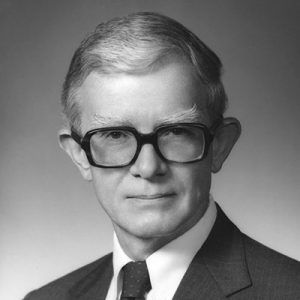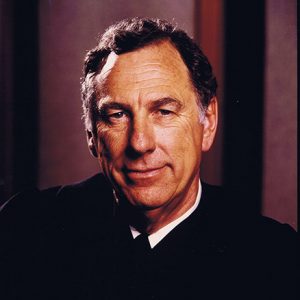calsfoundation@cals.org
Finney v. Hutto
aka: Hutto v. Finney
In this series of landmark court cases, prisoners at the Cummins Farm and Tucker Intermediate Reformatory units of the Arkansas prison system continued to challenge their conditions of confinement, several years after Chief Judge J. Smith Henley of the U.S. District Court for the Eastern District of Arkansas declared in Holt v. Sarver I (1969) and Holt v. Sarver II (1970) that confinement in the prisons constituted cruel and unusual punishment, violating the Eighth and Fourteenth amendments.
Judge Henley called the conditions that prisoners faced “a dark and evil world completely alien to the free world.” The prisoners were represented by attorneys Jack Holt Jr. and Philip Kaplan of Little Rock (Pulaski County). Henley’s original decision ordered the Arkansas Department of Correction to remedy the situation. The Eighth Circuit Court of Appeals affirmed Holt II. The U.S. District Court for the Eastern District of Arkansas retained jurisdiction in the case.
In Holt v. Hutto (a.k.a.Holt III, 1973), the court held that substantial improvements had been made and continuing supervision by the district court was not necessary. In Finney v. Arkansas Department of Correction and Terrell Don Hutt et al. (1974), the appeals court ordered that the district court retain jurisdiction. It was not until August 20, 1982, that Judge Thomas Eisele of the Eighth District Court dismissed the case against the Arkansas prison system, claiming that court oversight was no longer warranted, although he acknowledged that problems persisted.
Finney v. Arkansas Department of Correction and Terrell Don Hutt et al.
In August 1973, the U.S. District Court for the Eastern District of Arkansas decided Finney v. Arkansas Department of Correction and Terrell Don Hutto et al., a class-action suit brought by inmates of Tucker and Cummins who were again challenging the constitutionality of their conditions of confinement. The respondents (the prison officials) had been required to eliminate unconstitutionalities in the prison system. Remedying the situation took longer than the court believed appropriate. In the interim, the prisoners continued to experience grievous conditions that led them to petition the court for relief. After lengthy evidentiary hearings were conducted in December 1972 and January 1973, the court denied individual relief but granted the inmates “a supplemental decree enjoining certain practices of the Department of Correction.”
An appeal of the supplemental decree was filed by prisoners in the case Finney v. Arkansas Department of Correction and Terrell Don Hutto et al. (1974), asserting error. Philip Kaplan of Little Rock represented the appellants. The case was heard by the Eighth Circuit Court of Appeals in 1974. The circuit court reversed the district court finding in part and remanded the case back to the district court for further proceedings consistent with the appeals court opinion. While the appeals court pointed to progress that had been made, it acknowledged that “constitutional deficiencies” and an inhumane environment continued to exist “in housing, lack of medical care, infliction of physical and mental brutality and torture upon individual prisoners, racial discrimination, abuses of solitary confinement, continuing use of trusties as guards, abuse of mail regulations, arbitrary work classifications, arbitrary disciplinary procedures, inadequate distribution of food and clothing, and total lack of rehabilitative programs.”
The appeals court ordered that the district court retain jurisdiction and grant further relief. The appeals court found that the state had failed “to assume an obligation for the safekeeping” of prisoners. The appeals court, in remanding the case, ordered that the state eliminate overcrowding, inhumane conditions, and other specified deficiencies. The court also ordered that the state provide rehabilitation, due process in disciplinary hearings, and protection of privileged correspondence with attorneys.
The court enjoined certain aspects of solitary confinement. The court held that inmates in solitary confinement should not “be deprived of basic necessities including light, heat, ventilation, sanitation, clothing and a proper diet.”In remand, the district court found that while positive changes and attitudes on the part of prison officials and the legislature were evident, the district court recognized that unconstitutionalities still existed, and it ordered injunctive relief.
Finney v. Hutto (1976)
The case of Finney v. Hutto is a collection of consolidated petitionsof inmates at Tucker and Cummins. The case was remanded to the district court by the Eighth Circuit Court of Appeals—that is, it was sent back to the trial court for further action after the appeals court reversed the judgment of the lower court. Judge Henley served as the circuit judge, and attorneys Jack Holt Jr., Philip Kaplan, and Phillip McMath of Little Rock represented the inmates.
The court carefully examined many aspects of confinement in the Arkansas Department of Correction and found continuing problems with overcrowding, race relations, and grievance procedures, as well as inadequate medical services and health care. The court found that “if one looks at the history of the Arkansas prison system from 1965 or 1966 down to the present day, one may note a continuous albeit erratic course of improvement.“ In the opinion, Henley related that “it would be unfair to say that the attitude of the respondents is uncooperative today, but the court thinks that it has noted that with the passage of time and with improvements in prison conditions being made, there has been some hardening of Departmental attitudes and an unwillingness on the part of the prison administrators to go much if any farther than they have gone, and as has been seen the progress that has been made to this date is still insufficient.”
The court held that certain aspects of confinement were still unconstitutional, in particular the department’s policy of indeterminate sentencing of inmates to punitive isolation, the overcrowding of inmates in punitive isolation, and the calorically inadequate “grue” diet. The major actions of the court pursuant to remand focused on the practice of punitive isolation. The court put a limitation of thirty days on the use of punitive isolation, placed a limit on the number of men in each cell, required that each man have a bunk, and ordered that the grue diet be discontinued. In addition, the court ordered the Department of Correction to pay litigation costs plus $20,000 to appointed counsel for the prisoners.
Finney v. Hutto (1977)
Appellants/officials of the Arkansas Department of Correction filed their appeal to challenge the findings of the district court in Finney v. Hutto. Philip Kaplan represented the prisoner appellee. With him on the brief were Jack Holt Jr. and Phillip H. McMath of Little Rock and Stanley Bass of New York City. The appeals court affirmed the district court’s finding, thereby denying the Arkansas Department of Correction’s appeal. The appeals court noted, “We affirm this holding on the basis of Judge Henley’s well-reasoned opinion.” Henley concluded that confinement in punitive isolation for more than thirty days is cruel and unusual punishment and thus impermissible.
Hutto v. Finney (1978)
In Hutto v. Finney, the U.S. Supreme Court addressed two aspects of the many remedial orders that had been issued in the long list of cases challenging the conditions of confinement in Arkansas prisons: first, the limit on the use of punitive isolation to thirty days, and, second, the order that inmate counsel be paid $20,000 out of Department of Correction funds because of “bad faith” on the part of the prison officials in remedying the unconstitutional conditions of confinement in Arkansas prisons. Philip E. Kaplan argued the case before the Supreme Court for the prisoners. With him on the brief was Jack Holt Jr. Several amicus curiae (“friend of the court”) briefs were filed, including ones by the solicitor general, assistant attorneys general, the American Civil Liberties Union, the Lawyers’ Committee for Civil Rights Under Law, and the attorneys general of Mississippi and Texas.
From December 1969, when Kaplan and Holt began their work on Holt v. Sarver, to June 23, 1978, when the Supreme Court handed down its decision in the case of Hutto v. Finney, there had been three published district court opinions, five additional unpublished interim memoranda and orders of the district court, and three opinions in the appeals court regarding the Arkansas Department of Correction and the administration of the Arkansas prison system. All of the findings of unconstitutionality of the Arkansas prison system as cruel and unusual punishment by the district court had either been affirmed or never challenged.
In Hutto v. Finney, the U.S. Supreme Court affirmed the findings of the district court. With regard to limiting the length of time in punitive isolation, Justice John Paul Stevens, writing for the majority, stated: “If petitioners had fully complied with the court’s earlier orders, the present time limit might well have been unnecessary. But taking the long and unhappy history of the litigation into account, the court was justified in entering a comprehensive order to insure against the risk of inadequate compliance.” With regard to the question of inmate lawyers’ fees, Justice Stevens wrote, “In this case, the award of attorney’s fees for bad faith served the same purpose as a remedial fine imposed for civil contempt. It vindicated the District Court’s authority over a recalcitrant litigant.”
Arkansas’s attorney general, William Jefferson Clinton, hailed the landmark decision. He assigned two members of his staff whose responsibility it was to ensure compliance of the Arkansas Department of Correction and the state with the Supreme Court decision. As Kaplan explained, “It wasn’t until Clinton became Attorney General that there was a significant effort on the part of the state to change things irrevocably.”
For additional information:
Crosley, Clyde. Unfolding Misconceptions: The Arkansas State Penitentiary, 1836–1986. Arlington, TX: Liberal Arts Press, 1986.
Finney v. Arkansas Board of Correction and Terrell Don Hutto et al., 505 F.2d 194 (1974)—Court of Appeals, Eighth Circuit.
Finney v. Hutto, 410 F. Supp. 215 (1976)—District Court, Eastern District of Arkansas.
Finney v. Hutto, 548 F. 2d 740 (1977)—Court of Appeals, Eighth Circuit.
Hutto v. Finney, 437 U.S. 678 (1978)—United States Supreme Court. Justia U.S. Supreme Court Center. http://supreme.justia.com/cases/federal/us/437/678/ (accessed October 20, 2021).
Murton, Thomas O., and Joe Hyams. Accomplices to the Crime: The Arkansas Prison Scandal. New York: Grove Press, 1969.
———.Crime and Punishment in Arkansas: Adventures in Wonderland. Stillwater, OK: 1985.
Spiller, D. P. After Decision: Implementation of Judicial Decrees in Correctional Settings: A Case Study of Holt v. Sarver. Rockville, MD: National Institute of Law Enforcement and Criminal Justice, 1976.
Dorothy S. McClellan
Texas A&M University-Corpus Christi
 Divergent Prosperity and the Arc of Reform, 1968–2022
Divergent Prosperity and the Arc of Reform, 1968–2022 Law
Law Murton, Thomas Orhelius
Murton, Thomas Orhelius Prison Reform
Prison Reform G. Thomas Eisele
G. Thomas Eisele  Jack Wilson Holt Jr.
Jack Wilson Holt Jr. 



Comments
No comments on this entry yet.